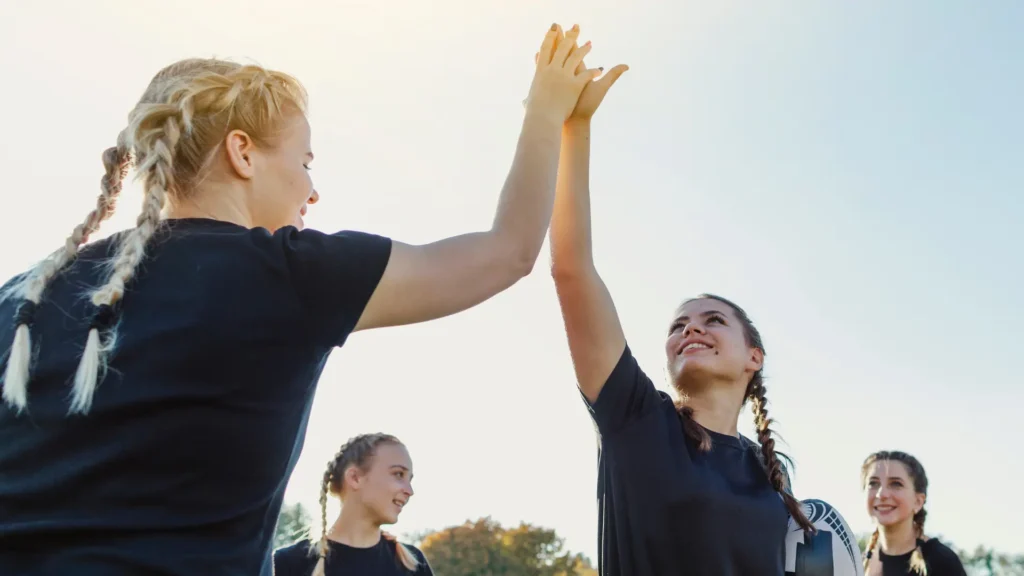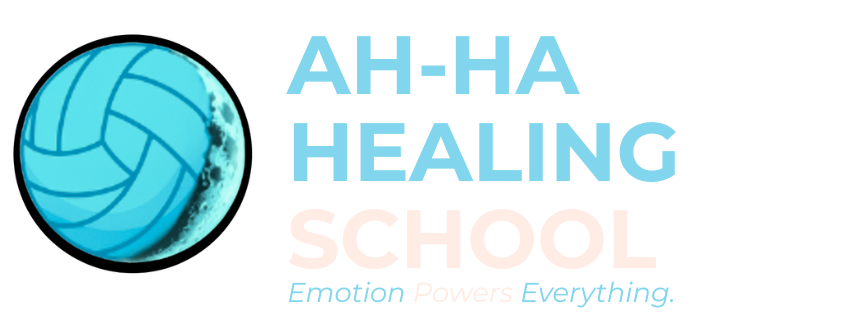
Introduction: The Hidden Game-Changer in Sports Performance
Every athlete knows the drill: train your body, sharpen your skills, master your playbook. But what if the real edge—the difference between winning and plateauing—lies deeper? What if your emotional fitness is the true game-changer, not just for your own performance, but for your entire team?
In locker rooms and on fields around the world, the conversation is changing. Coaches and athletes are waking up to a new truth: emotional fitness isn’t “soft.” It’s science. It’s strategy. And it’s the foundation for sustained excellence in every sport.
Yet, when emotional fitness is lacking, the cost is high—on the scoreboard and in the human experience. Toxic triangulation, codependency, and constant misunderstandings can sabotage even the most talented teams. The good news? These patterns can be course-corrected immediately, unlocking new levels of performance and fulfillment.
Let’s dive deep into why emotional fitness is the secret weapon for athletes, how to spot the warning signs of low emotional fitness, and the step-by-step strategies to win from within.
—
What Is Emotional Fitness for Athletes?
Emotional fitness is the ability to recognize, understand, and manage your own emotions—and to relate to the emotions of others. In sports, it means staying calm under pressure, bouncing back from setbacks, and building strong, healthy relationships with teammates and coaches. If you do not understand your emotional system and the operating manual, emotional toxicity and early emotional pain will become activated…often without your conscious awareness.
Think of emotional fitness as your psychological “core strength.” Just as you wouldn’t skip leg day, you can’t afford to neglect your emotional training. The best athletes train their minds and hearts as rigorously as their bodies. But mental health and mental fitness have become confusing playgrounds of mixed messages and way too many modalities. Mental health and fitness lies in your cognitive. Your stinking thinking. Many may have told you, I think therefore I am. If you can just visualize it, you can make it happen. Most of this has good intentions, however, without strong emotional fitness the mental game will always be lacking. Emotional fitness is your superpower.
The Four Quadrants of Athletic Emotional Fitness
At AH-HA Healing, we break emotional fitness into four interconnected quadrants:
– Mental: Mastering mindset, focus, and limiting beliefs. How unresolved emotional pain is actually in control of your mind until the emotional injury is healed.
– Emotional: This is the bedrock of your life. Everything begins in this system before it ever reaches your mental cognition. Optimizing this system is the missing ingredient with little understanding…until now.
– Physical: Understanding how emotions impact the body and how unresolved emotional pain shows up in every part of your body—think stress, sleep, digestion and recovery.
– Spiritual: Connecting to purpose, values, and authentic self-expression. Not woo. Real science.
When these quadrants are balanced, athletes thrive—not just in their sport, but in life.
—
The Science: Why Emotional Fitness Matters in Sports
Research shows that athletes with high emotional intelligence consistently outperform their peers. According to Laborde et al. (2016), emotional intelligence is linked to better performance, motivation, adaptability, and overall well-being.
Why? Because emotional fitness helps athletes:
– Maintain focus under pressure
– Recover quickly from mistakes or losses
– Communicate effectively with teammates and coaches
– Navigate the ups and downs of competition with grace
It’s not just about “feeling good”; it’s about winning more, losing less, and loving the game longer.
—
The Dark Side: What Happens When Emotional Fitness Is Low
Let’s get real. In environments where emotional fitness is ignored, toxic patterns can take hold. These aren’t just buzzwords—they’re performance killers. Organization killers. Team destroyers.
Toxic Triangulation
Triangulation happens when two people in conflict pull a third party into the drama, creating confusion, alliances, and division. In sports, this might look like:
– Players gossiping about a teammate instead of addressing issues directly
– Coaches playing favorites, fueling resentment
– Cliques forming, isolating certain members
Triangulation destroys trust and unity. It shifts the focus from the team’s goals to interpersonal drama, draining energy and attention.
Codependency
Codependency in sports shows up when athletes or coaches become overly reliant on each other for validation, decision-making, or emotional regulation. Examples include:
– Athletes needing constant praise to feel worthy
– Coaches micromanaging players, stifling autonomy
– Teammates enabling negative behaviors out of loyalty
Codependency leads to burnout, anxiety, and a lack of personal accountability. It creates an environment where individuals can’t perform at their best—because they’re too busy managing everyone else’s feelings.
Misunderstandings and Communication Breakdowns
Low emotional fitness means people struggle to communicate openly and honestly. This results in:
– Misinterpreted intentions (“Coach is mad at me” when they’re just focused)
– Suppressed emotions that eventually explode
– Missed opportunities for feedback and growth
When misunderstandings pile up, performance suffers. Teams lose their edge, and the joy of sport fades.
—
The Ripple Effect: How Toxic Dynamics Impact Performance
Unchecked, these patterns erode even the most talented teams. Here’s what you might notice:
– Increased mistakes and unforced errors
– “Invisible” injuries—stress, anxiety, and exhaustion
– High turnover: athletes quitting or transferring
– Plateaued or declining results despite physical training
Championship teams aren’t just physically gifted. They’re emotionally fit. They trust each other, take responsibility, and bounce back stronger after setbacks.
—
Course Correction: How to Build Emotional Fitness—Fast
The good news? Emotional fitness can be trained and strengthened—just like any muscle. Here’s how to course correct toxic patterns and unlock peak performance.
1. Name the Patterns
Awareness is the first step. Encourage open conversations about what’s really happening:
– Are there cliques or gossip?
– Do people feel safe giving feedback?
– Is anyone feeling isolated or overly dependent?
Bring these issues into the light, without blame. This creates space for honest dialogue and healing.
2. Practice Direct Communication
Triangulation and misunderstandings thrive in secrecy. Model and teach direct, respectful communication:
– Address issues with the person involved, not through a third party.
– Use “I” statements (“I feel frustrated when…”) to own your experience.
– Encourage listening as much as speaking.
When teams communicate directly, trust deepens and conflicts resolve faster.
3. Set Healthy Boundaries
Codependency dissolves when boundaries are clear. Athletes and coaches can:
– Define roles and responsibilities
– Encourage independence and self-motivation
– Offer support, but don’t rescue or enable negative patterns
Boundaries build respect and accountability, which are the backbone of high-performing teams.
4. Cultivate Self-Awareness and Emotional Regulation
Emotional fitness starts within. Athletes can train self-awareness and regulation by:
– Practicing mindfulness and body scans to notice emotions as they arise
– Using visualization and positive self-talk to prepare for high-pressure moments
– Journaling or debriefing after games to process experiences
These habits build resilience, helping athletes stay grounded and focused.
5. Build a Supportive Team Culture
Performance isn’t just individual—it’s collective. Teams can nurture emotional fitness by:
– Celebrating effort and growth, not just outcomes
– Creating rituals for connection (team check-ins, gratitude circles)
– Encouraging vulnerability and honesty from the top down
A supportive culture is the ultimate safety net, catching athletes before they fall.
—
The Immediate Impact: Course Correcting for Performance
When emotional fitness becomes a priority, change happens fast. Here’s what you can expect:
Enhanced Focus and Resilience
Athletes spend less time managing drama and more time honing their craft. They recover from mistakes quickly and stay present in the moment.
Stronger Relationships and Communication
Teams that communicate openly trust each other more. They collaborate better, adapt to change, and support each other through challenges.
Greater Accountability and Growth
With clear boundaries and self-awareness, athletes take responsibility for their actions and attitudes. They seek feedback, learn from setbacks, and continuously improve.
Sustainable Success
Emotional fitness isn’t a one-time fix—it’s the foundation for a lifetime of achievement, on and off the field. Athletes who master these skills excel in sports, in school, and in life.
—
AH-HA Healing: Your Partner in Emotional Fitness for Athletes
At AH-HA Healing, we’re leading a revolution in sports wellness. Our retreats, coaching, and digital programs are designed to help athletes and teams develop emotional fitness as a core competitive advantage. Understanding the science of emotional pain, the system of emotion and approaching this from a fitness perspective is a key part of the success.
What We Offer:
– 7-Day Immersive Retreats: Intensive emotional fitness training for athletes, coaches, and teams. Experience healing workshops, creative activities, and cutting-edge wellness practices in beautiful British Columbia.
– Proprietary Methodology: 30+ years of research, integrating game theory and AI-driven solutions. We measure and track your progress in self-compassion, self-empathy, and resilience.
– Holistic Approach: Addressing mental, emotional, physical, and spiritual quadrants for total athlete development.
– Ongoing Support: Digital wellness community, follow-up coaching, and free guides to keep you on track after your retreat.
Our mission is to help you win from within—because true champions are built from the inside out.
—
Real Results: Testimonials from Athletes & Coaches
“AH-HA Healing helped me break through the unresolved trauma I didn’t even know I had. My performance on the field and my relationships with teammates have never been better.”
— Jonah, Professional Athlete
“I used to get stuck in my head after a bad game and spiral into self-sabotage. Now, I bounce back faster and actually enjoy the process again.” Emotional fitness is a game changer for all aspects of my life
— Madison, Collegiate Soccer Player
“Our team was struggling with cliques and constant drama. After working with AH-HA Healing, we’re more united and focused than ever.”
— Coach Andrew
—
Ready to Win From Within?
If you’re tired of surface-level solutions and want to unlock your full potential, it’s time to make emotional fitness your competitive edge. Whether you’re an athlete, coach, or parent, AH-HA Healing offers the support and strategies you need to transform your game—starting now.
– Explore our athlete programs
– Join our digital wellness community
– Book your spot at our next retreat
Don’t let toxic patterns hold you back. Build emotional fitness, course correct your team culture, and achieve the peak performance you deserve.
Visit https://ahhahealing.com for more information, free resources, and upcoming events.
Questions? Email us at Info@ahhahealing.com.
Direct Link to Share:
https://ahhahealing.com







Emotional fitness is the wellness revolution the world has been waiting for—a vital shift beyond the limits of traditional mental health. It’s time to separate emotional fitness from outdated systems of therapeutic funding, education, and hopelessness.